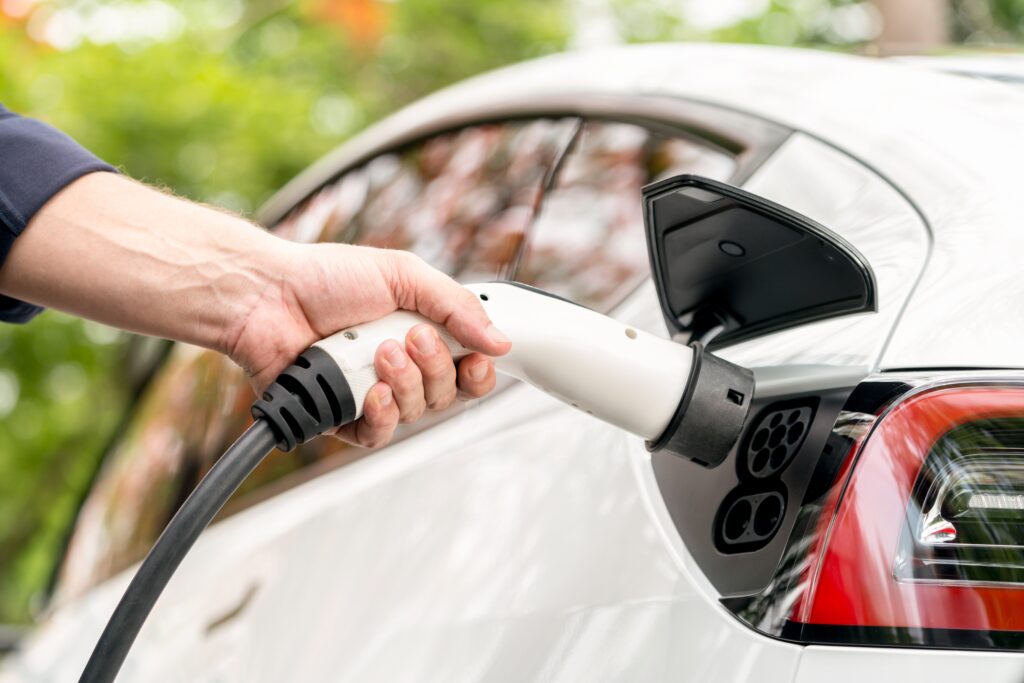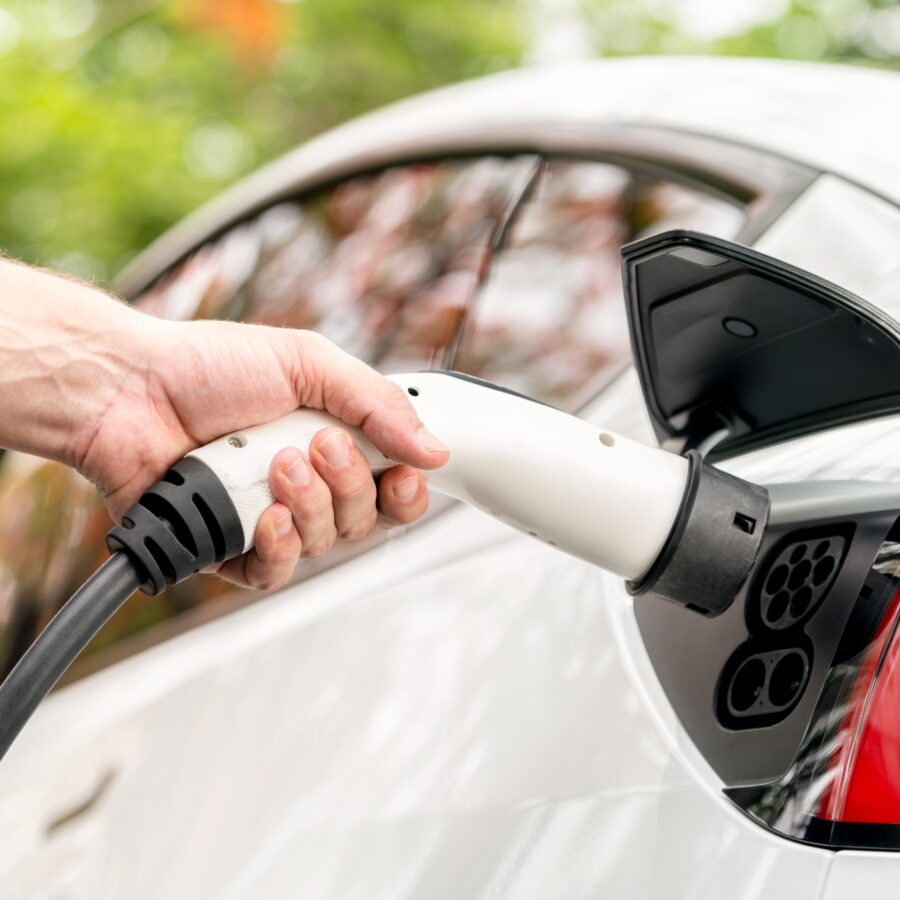Most, purely electric cars do not produce carbon monoxide. That said, some electric cars feature built-in generators, sometimes called range extenders, and a very small fuel tank. When the car’s battery runs low, the fuel-powered generator kicks in to recharge the car’s battery, then shuts off, returning the car to electric power. So, some electric cars produce carbon monoxide.
With these particular vehicles, because fuel is occasionally burned, there is the possibility that the car will produce and emit carbon monoxide. However, the chance of carbon monoxide poisoning is lower for these electric vehicles because they usually run on electric power, and the amount of burnable fuel in the car is small compared with the amount that can be carried in the tank of a combustible-engine vehicle.

The Danger of Carbon Monoxide Poisoning From Vehicles
Any time that a combustible-engine-powered car sits idling, it burns fuel, and CO is emitted via the vehicle’s tailpipe. As the gases exit the pipe, they can quickly fill an enclosed space, such as a garage. Because CO is odorless, colorless, tasteless, and non-irritating, an individual would have very few cues to indicate that the deadly gas has consumed the space. More frightening still, as many garages are connected to homes, the CO can travel undetected into the drivers’ living spaces, putting them and their families at risk of poisoning.
The presence of CO in the home is particularly dangerous when the inhabitants are sleeping because they will have no opportunity to note the symptoms of CO poisoning before it either kills them or causes serious brain damage.
The Deadly Convenience of Keyless Ignitions
We are seeing an increase in the number of accidental CO poisoning deaths resulting from cars left idling in their garages. The explanation comes down to two words: keyless ignitions.
In a June 2019 feature, the Detroit Free Press reported that there have been 37 carbon monoxide deaths associated with keyless cars since 2005.
The deaths occurred when keyless ignition vehicles were inadvertently left idling in garages. The accidents caused not only multiple tragic deaths but also dozens of injuries, including some cases of serious brain damage.
Why Keyless Ignitions Promote CO Poisoning
Consumer Reports article on the dangers of push-button start attributes the increase in CO poisoning with keyless ignition vehicles to human nature, as well as changes to engine designs over the years that make it harder to tell if a vehicle’s engine is still running. Quiet engines, combined with counterintuitive ignition designs that can leave the engine on even when the fob has been removed, have proven deadly.
No Need to Turn a Key
With a traditional key-operated car, the driver has to manually insert and twist the key to turn the engine on and off. The very action makes the driver more aware of the car’s running status. Keyless ignition fobs and cards, on the other hand, offer drivers the convenience of only having to have a fob in close proximity to the car for the vehicle to respond to various controls, such as pressing a dashboard button to start the engine.
No Engine Noise
Without the visual and tactile reminders of turning the key, it is more likely that a driver will not realize they have forgotten to press the power button to turn the car’s engine off. And, with the barely audible engine, the audio cues and reminders are drastically reduced.
An Undetectable Poison
So the driver leaves the car, with trusty fob in pocket, making the subconscious mental connection that, if the key is not in the ignition, the car cannot be on. They go about their lives, cooking, showering, watching TV, going to bed, all the while, the CO from the garage can be seeping into the home and slowly filling it with poison.
The driver enters the house and settles in for the night, without every realizing that their garage and perhaps home are filling with poisonous gas.
Added Dangers of Hybrid and Plug-In Cars
Electric, hybrid, and plug-in cars are especially stealth when it comes to the volume of their engines. Drivers may actually listen for the engine to check if it is still running and still not be able to determine that it is still on.
Lawsuits Against Car Manufacturers
As increasing numbers of people are killed or seriously injured from monoxide poisoning, they are holding auto manufacturers accountable for their losses. Their lawsuits contend that car companies knew about the inherent dangers of keyless ignitions and did nothing to prevent these tragic outcomes.
Since many of these lawsuits were filed, many manufacturers have installed audio warnings or automatic shutdown mechanisms in their vehicles. While this is a good first step, many older cars still lack these features and present a danger to drivers.


